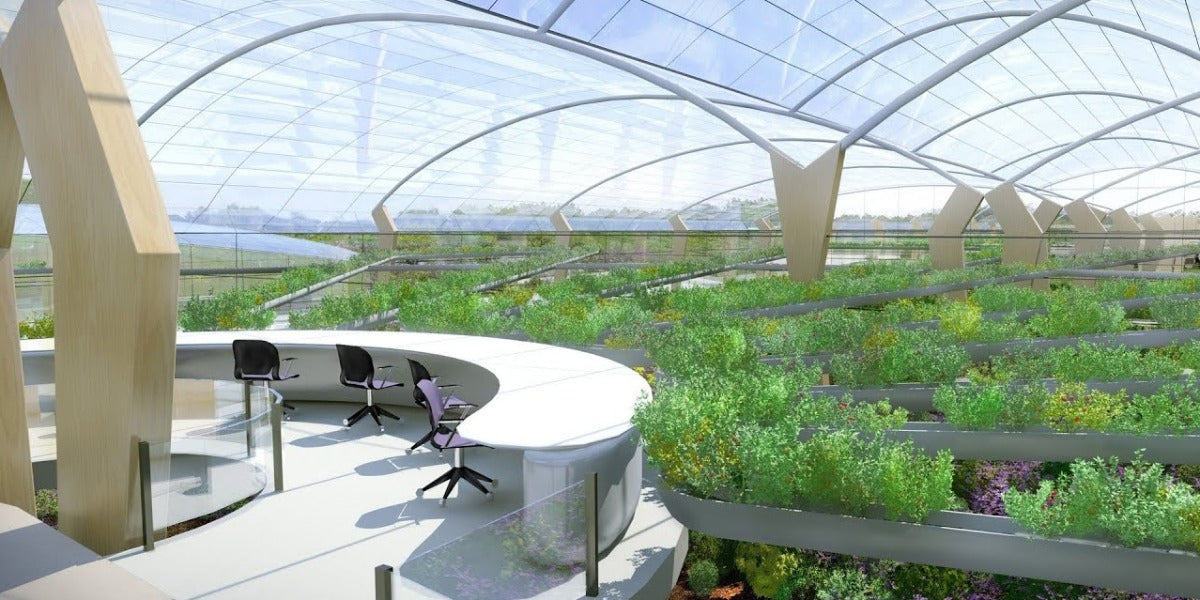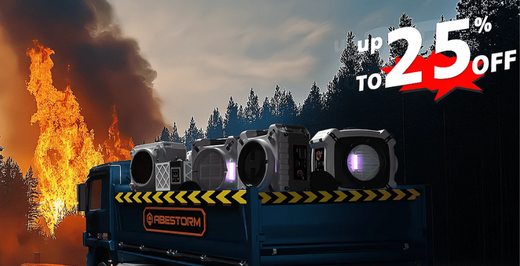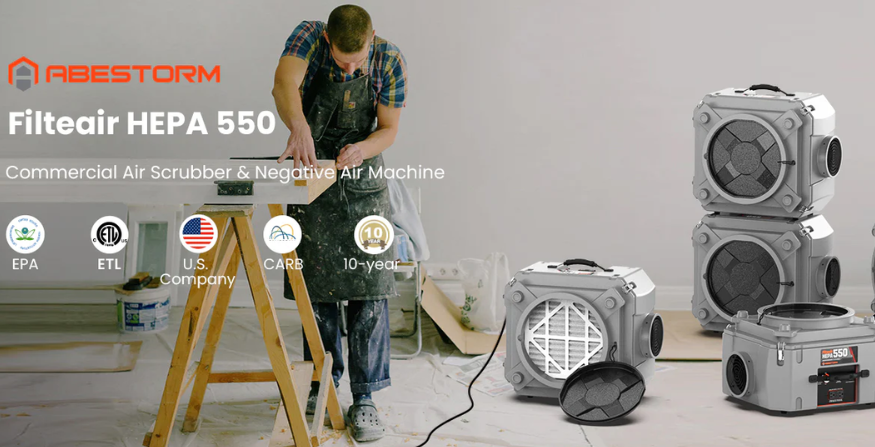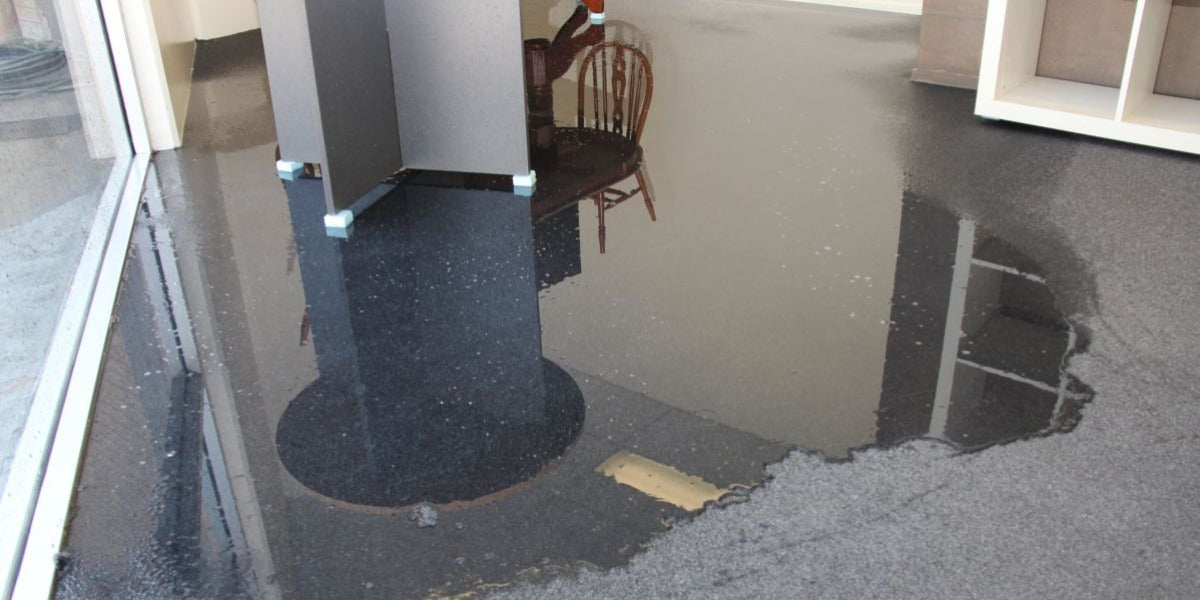Creating the perfect environment for your plants is essential for a thriving greenhouse. One crucial aspect of greenhouse management is controlling humidity levels. Excessive humidity can lead to mold, mildew, and various plant diseases, while inadequate humidity can stunt plant growth. To maintain optimal conditions, investing in a reliable greenhouse dehumidifier like "Abestorm 120 Pints Guardian SN55 Crawl Space Dehumidifier" is a must. In this blog, we'll explore the importance of humidity control in greenhouses, the factors to consider when choosing a dehumidifier for greenhouse use, and why the right dehumidifier is a game-changer for your greenhouse.
Why Humidity Control is Crucial in Greenhouses
Humidity control is vital for maintaining a healthy greenhouse environment. High humidity levels can lead to several issues, such as mold, mildew, and increased pests. These problems not only harm your plants but can also affect the structural integrity of your greenhouse.
Problems Caused by Excessive Humidity:
Mold and Mildew Growth: High humidity creates a perfect breeding ground for mold and mildew, which can damage plants and spread rapidly.
Increased Pests: Pests thrive in humid environments, leading to infestations that can devastate plants.
Plant Diseases: Many plant diseases are exacerbated by high humidity, reducing plant health and yield.
Benefits of Maintaining Optimal Humidity Levels:
Healthier Plants: The Dehumidifier in greenhouse ensures proper humidity levels. It prevents disease and pest outbreaks, ensuring plants grow strong and healthy.
Enhanced Growth: Controlled humidity fosters an ideal growing environment, promoting better plant growth and productivity.
Structural Integrity: A dehumidifier maintains optimal humidity in a greenhouse, prevents moisture buildup, and protects the structure from damage.
Using a dehumidifier in a greenhouse can effectively manage these issues, creating a balanced environment that supports plant health and growth.
Factors to Consider When Choosing a Greenhouse Dehumidifier
Selecting the right dehumidifier for greenhouse use involves considering several key factors to ensure it meets your needs. Here are some crucial aspects to keep in mind:
Size and Capacity of the Greenhouse:
The size of your greenhouse determines the capacity of the dehumidifier you need. Larger greenhouses require dehumidifiers with higher moisture removal capacities.
Desired Humidity Level:
Different plants have varying humidity requirements. Choose a dehumidifier that allows you to set and maintain the desired humidity level for your specific plants.
Energy Efficiency and Cost Considerations:
Energy efficiency is crucial for reducing operational costs. Look for energy-efficient dehumidifiers that offer powerful performance without consuming excessive energy.
Ease of Installation and Maintenance:
Opt for dehumidifiers that are easy to install and maintain. Regular maintenance is essential for ensuring the unit operates efficiently over time.
Noise Levels:
Consider the dehumidifier's noise levels, especially if your greenhouse is near residential areas. Quieter units are preferable to avoid disturbing the surrounding environment.
Choosing the right greenhouse dehumidifier involves balancing these factors to find a unit that effectively controls humidity, fits your greenhouse size, and operates efficiently. By carefully selecting a dehumidifier for greenhouse, you can ensure optimal conditions for plant growth and health, maximizing your greenhouse's productivity and longevity.
Types of Dehumidifiers Suitable for Greenhouses
When choosing a greenhouse dehumidifier, it's essential to understand the different types available and their suitability for various environments. The two primary types are desiccant dehumidifiers and refrigerant dehumidifiers. Each has its own set of pros and cons, making them suitable for different greenhouse conditions.
Desiccant Dehumidifiers
Pros:
Efficient in Low Temperatures: Desiccant dehumidifiers work effectively even in more relaxed environments, making them ideal for greenhouses that experience lower temperatures.
Quiet Operation: They are generally quieter than refrigerant models, making them suitable for greenhouses where noise might be a concern.
Portable and Lightweight: They are easier to move and install, which can be advantageous for smaller greenhouses or those with limited space.
Cons:
Higher Energy Consumption: This model tends to consume more energy than refrigerant models, which can lead to higher operating costs.
Less Effective in High Humidity: More efficient at removing large amounts of moisture in humid conditions.
Suitable Environments:
It is best for greenhouses in cooler climates or those needing dehumidification in colder months.
Refrigerant Dehumidifiers
Pros:
High Moisture Removal Capacity: Excellent at removing large amounts of moisture, making them suitable for humid environments.
Energy-Efficient: It typically consumes less energy than desiccant models, which can be cost-effective in the long run.
Effective in Warm Conditions: Work best in environments with higher temperatures, typical in many greenhouses.
Cons:
Less Efficient in Low Temperatures: Performance can drop significantly in cooler climates, making them less suitable for year-round use in some greenhouses.
Bulkier Design: Often larger and heavier, which might be challenging for more miniature greenhouses with limited space.
Suitable Environments:
It is ideal for greenhouses in warmer climates or consistently experiencing high humidity levels.
Why Choose a Crawl Space Dehumidifier for Your Greenhouse?
Crawl space dehumidifiers are a versatile and effective solution for greenhouse dehumidification. Initially designed for use in crawl spaces, these dehumidifiers offer several benefits that make them ideal for maintaining optimal humidity levels in greenhouses.
Specific Benefits for Greenhouse Use
High Moisture Removal Capacity: Crawl space dehumidifiers can remove large amounts of moisture from the air, ensuring that your greenhouse maintains the ideal humidity level for plant growth.
Durability: Built to withstand harsh conditions, these dehumidifiers are durable and long-lasting, providing reliable performance in a greenhouse setting.
Compact Design: Their compact design allows them to fit into tight spaces, particularly in greenhouses where space may be limited.
Energy Efficiency: Many crawl space dehumidifiers are energy-efficient, helping to keep operational costs low while maintaining optimal humidity levels.
Features That Make Crawl Space Dehumidifiers Ideal for Greenhouses
Automatic Humidity Control: These dehumidifiers often come with built-in humidistats, allowing for precise control of humidity levels, which is essential for creating the perfect growing environment.
Continuous Drainage Options: Equipped with continuous drainage systems, crawl space dehumidifiers can operate continuously without requiring frequent manual water removal, which is convenient for greenhouse maintenance.
Robust Filtration: Many models feature advanced filtration systems that remove moisture and filter out dust and other particles, contributing to a cleaner air environment for your plants.
Low-Temperature Operation: Designed to function efficiently at lower temperatures, crawl space dehumidifiers can maintain performance even during cooler seasons, ensuring year-round humidity control.
Abestorm Crawl Space Dehumidifier: The Best Choice for Greenhouses
When selecting the best dehumidifier for your greenhouse, the Abestorm Crawl Space Dehumidifier stands out as a top choice. This reliable and efficient unit is designed to handle the unique challenges of greenhouse environments, ensuring optimal humidity levels for healthy plant growth.
Product Overview
The Abestorm Crawl Space Dehumidifier is precisely engineered to operate in damp, confined spaces, making it an excellent fit for greenhouses. It is built to manage high moisture levels effectively, maintaining a balanced environment that promotes plant health and prevents issues like mold and mildew.
Key Features and Benefits
High Moisture Removal Capacity: This dehumidifier can remove up to 198 pints of moisture daily and handle even the most humid greenhouse conditions.
Energy Efficiency: Designed with energy-saving technology, the Abestorm dehumidifier helps reduce operational costs while delivering powerful performance.
Durable Construction: Built to last, this dehumidifier features a robust design that withstands harsh conditions, ensuring long-term reliability.
Automatic Humidity Control: Equipped with a built-in humidistat, it allows for precise humidity control, which is crucial for maintaining the ideal environment for plants.
Continuous Drainage System: The continuous drainage option ensures uninterrupted operation, reducing the need for manual water removal.
Low-Temperature Operation: Effective in lower temperatures, making it suitable for year-round use in greenhouses.
Installation and Maintenance Tips for Greenhouse Dehumidifiers
Proper installation and regular maintenance are crucial to maximize the efficiency and lifespan of your greenhouse dehumidifier. Here's a step-by-step guide and some essential tips:
Regular Maintenance Tips to Ensure Optimal Performance
Clean the Filter: Regularly check and clean the filter to ensure efficient operation and prevent dust buildup.
Inspect the Coils: Periodically inspect the coils for dust and debris. Clean them as needed to maintain proper airflow and efficiency.
Check the Drainage System: Ensure the drainage hose is clear and free of obstructions to avoid water buildup.
Monitor Performance: Keep an eye on the dehumidifier's performance and humidity levels to ensure it's working effectively.
Additional Tips for Greenhouse Dehumidification
Maintaining optimal humidity levels in a greenhouse involves more than just using a dehumidifier. Here are some additional tips for better greenhouse dehumidification:
Combining Dehumidifiers with Other Humidity Control Methods
Ventilation: Use fans and vents to improve air circulation and reduce humidity.
Heating: Heating can help reduce moisture and prevent condensation in colder months.
Humidity Control Systems: Consider integrating automated humidity control systems that work alongside your dehumidifier.
Monitoring and Adjusting Humidity Levels
Use Hygrometers: Place hygrometers at different locations in the greenhouse to monitor humidity levels accurately.
Adjust Settings: Adjust the dehumidifier settings to maintain the desired humidity level based on the readings.
Seasonal Considerations
Winter: In colder months, humidity levels can rise due to reduced ventilation. Increase dehumidification and ensure proper heating.
Summer: Higher temperatures can lead to increased humidity. Use both dehumidifiers and ventilation to keep levels in check.
Conclusion
Using a dehumidifier in your greenhouse is essential for maintaining a healthy plant environment. The Abestorm Crawl Space Dehumidifier offers the perfect solution, combining high moisture removal capacity, energy efficiency, and durability. Following proper installation and maintenance practices, you can ensure your dehumidifier operates at peak performance, providing your plants with the ideal growing conditions.
Ready to See Your Greenhouse Thriving With The Right Dehumidifier?
Visit Abestorm today to explore our range of high-quality crawl space dehumidifiers, specifically designed to meet the needs of greenhouse owners. For personalized advice and support, contact our expert team to help you choose the best dehumidifier for your greenhouse.









Shop For Dehumidifier